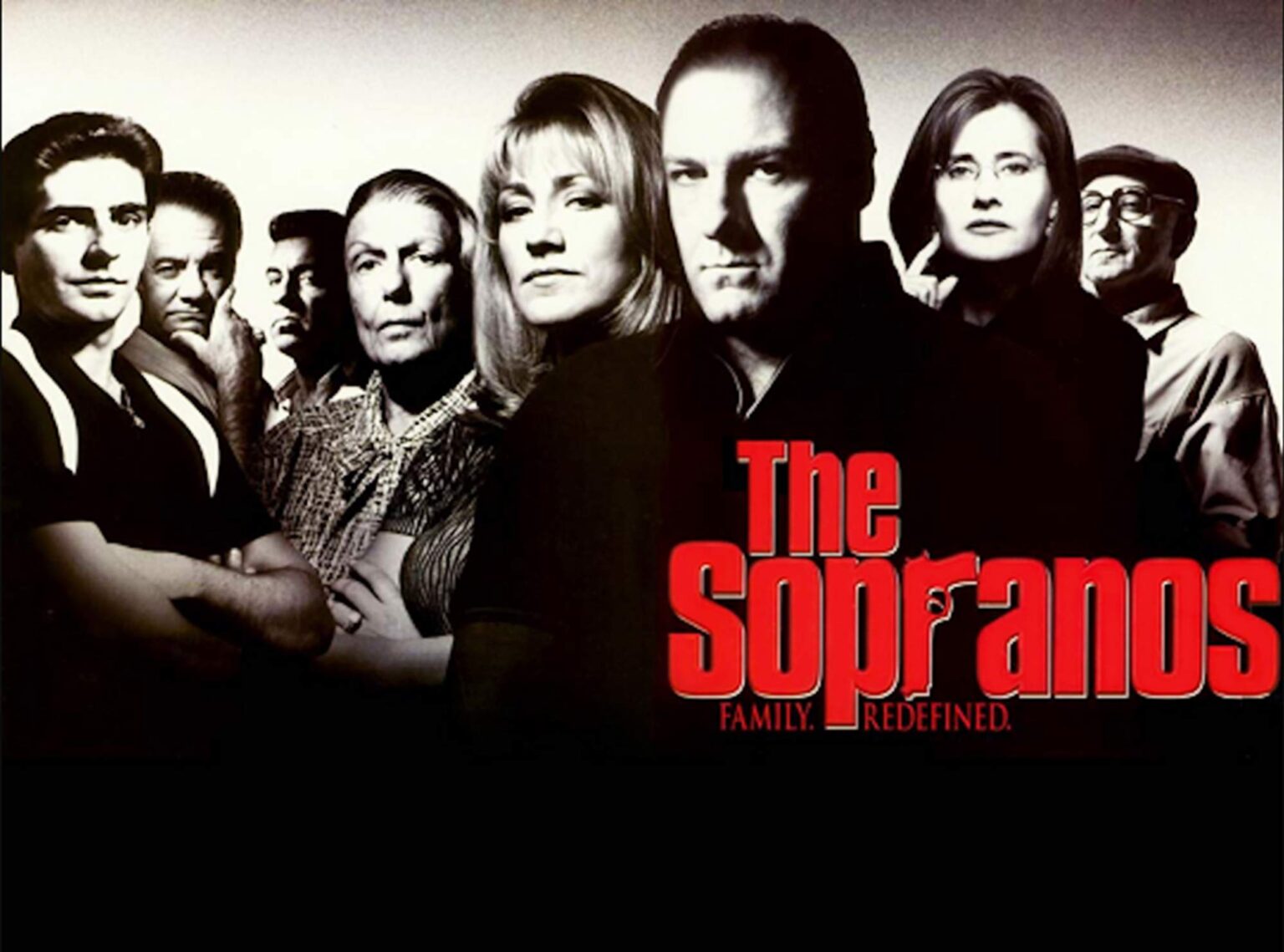
Is Tony on ‘The Sopranos’ a monster? A look at the facts
Over twenty years after its initial release and over a decade after its finale, David Chase’s groundbreaking series The Sopranos manages to remain a cultural touchstone of American television.
Often credited with single handedly creating the Golden Age of TV Drama, The Sopranos remains relevant because of its intensely captivating storylines, memorable and multifaceted characters, satire of the gangster genre, and commentaries on American society.
The Sopranos has enjoyed yet another boom in its popularity: during quarantine, many viewers are revisiting the series or experiencing it for the first time. The Sopranos’s twenty-year anniversary was last year, and a prequel film is set to release next March titled The Many Saints of Newark.

Several podcasts with Sopranos alum as the hosts have kicked off recently: Talking Sopranos with Michael Imperioli and Steve Schirripa, Made Women Pod with Drea de Matto, and Pajama Pants with Jamie-Lynn Sigler & Robert Iler.
Perhaps most important to the success of The Sopranos was the late James Gandolfini’s brilliantly nuanced, iconic performance as Tony Soprano. The character of Tony Soprano began the trend of deeply flawed and morally dubious antihero protagonists in television, continuing on with Walter White, Don Draper, Dexter Morgan, and numerous characters on The Wire and Game of Thrones to name only a few.
Tony himself remains the gold standard of this type of TV antihero, with a multitude of both heroic and deeply unsettling, cruel actions throughout the series which have us bouncing back and forth between loving & despising the character.
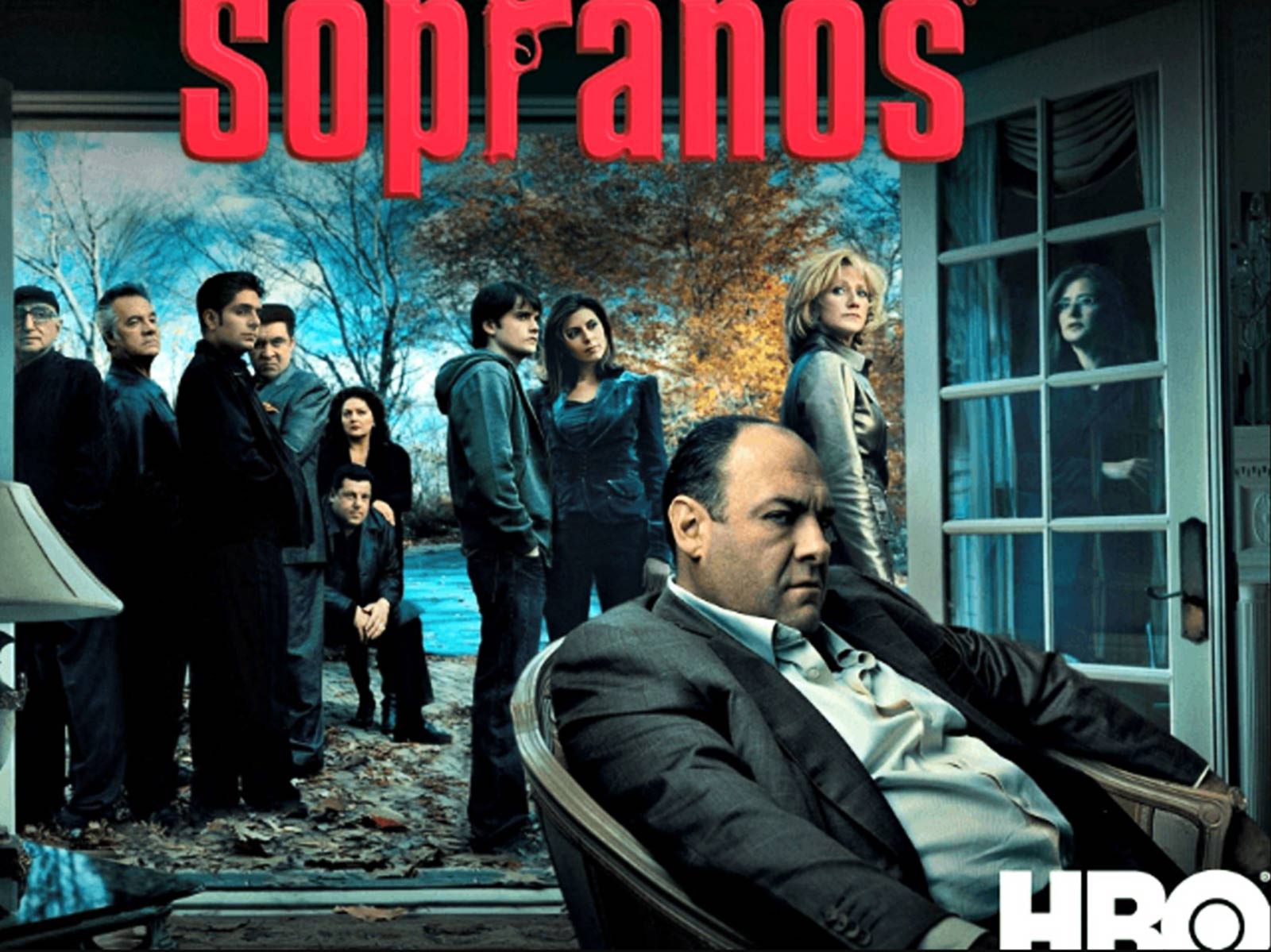
Gandolfini himself, who by all accounts was a warm, kind, genuine, and generous man, often struggled to portray this character possessing such anger, darkness, and spite in his soul. Yet Gandolfini managed to imbue Tony with so many of his own positive qualities: charisma, humor, genuineness, and even occasionally altruism & love.
We’re counting down Tony’s best – and most evil – moments on The Sopranos. Much like The Sopranos itself, we’ll let you be the judge whether Tony is an unrepentant monster, or a potentially good man wounded by his traumatic upbringing.
We’ll be trying to avoid general statements that could apply throughout The Sopranos. Tony’s racism & bigotry, extramarital affairs, and general acts of violence & aggression are so prevalent it’s almost unfair to include them in a list of “moments” – as are his sentimental moments with family or general acts of kindness & decency.

No, we’re sticking to concrete and memorable moments that speak to both the good & evil sides of Tony Soprano. So let’s dive in.
Major spoilers ahead
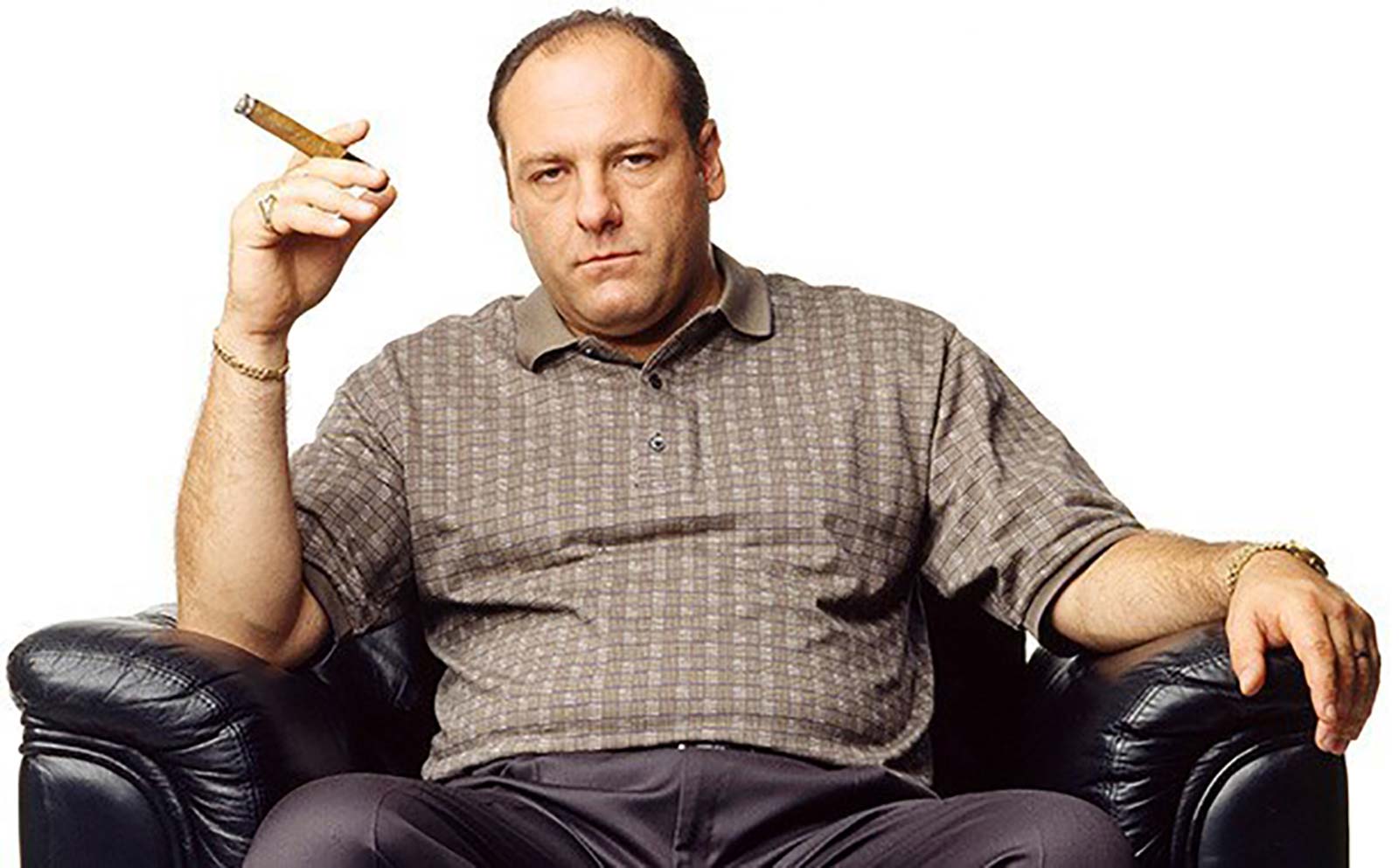
5. Good: Killing Tony B (S5E13 “All Due Respect”)
Tony’s cousin Tony Blundetto is finally released from prison at the start of season 5 and begins ingratiating himself back into the Sopranos’ lives. Tony is happy to see his cousin return, though he respects his cousin’s wishes to stay out of the mob life and resume civilian work.
However, like all mob guys on The Sopranos, Tony B is ultimately unable to cope and adapt to civilian life, preferring the adrenaline excitement of the gangster lifestyle. Tony B makes a fatal error by seeking revenge for the Leotardo brothers’ murder of his mentor Angelo Garepe.
Tony B murders Billy Leotardo, which leads to conflicts with the Lupertazzi family of New York City and the Jersey Di Meo family (of which the Sopranos are the controlling members). Phil Leotardo, Billy’s older brother who is fresh out of prison, swears vengeance.
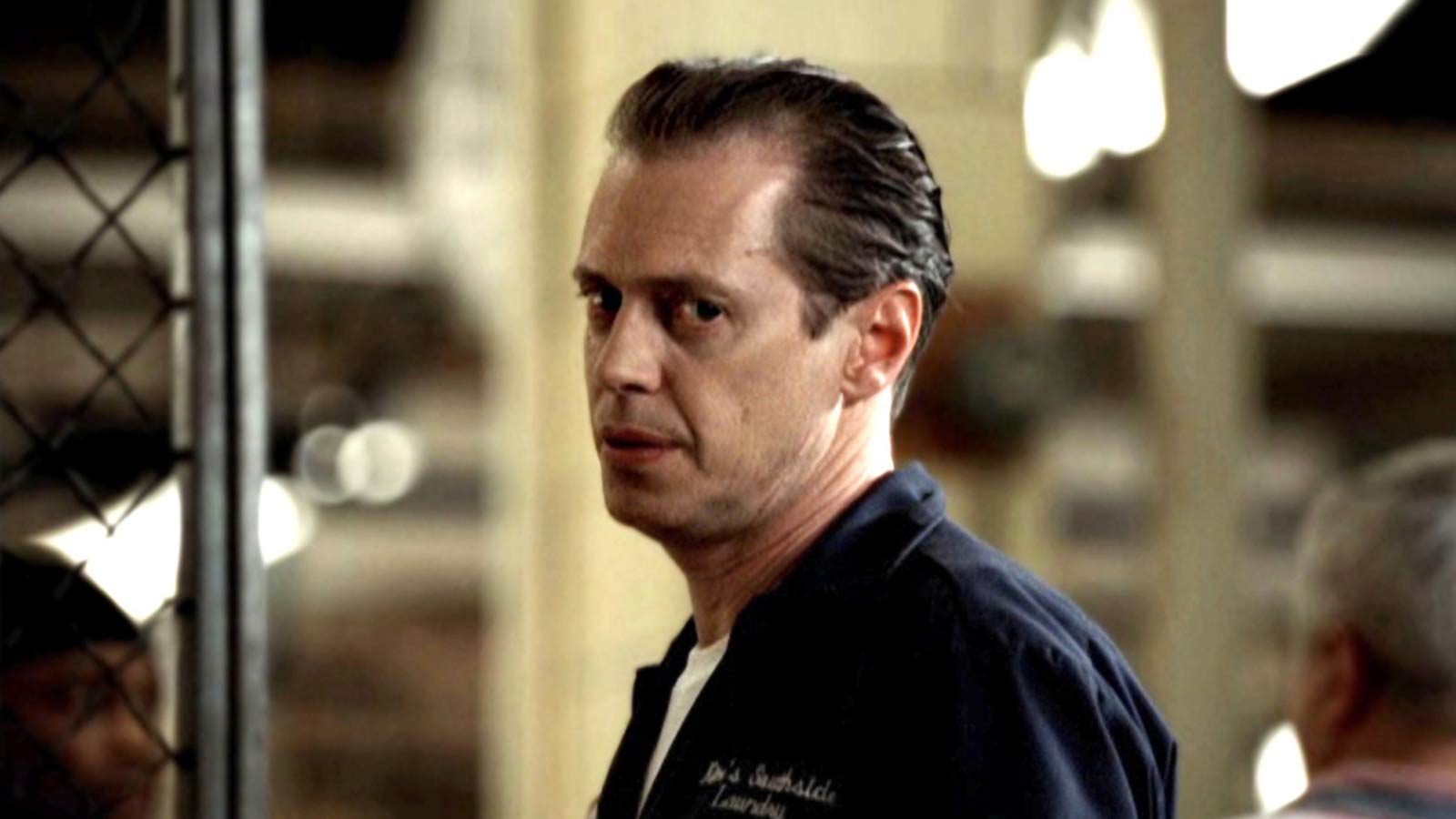
After numerous failed attempts to make peace with Phil and maintain a relationship with the Lupertazzis while protecting his cousin, Tony S decides to murder Tony B personally, taking him by surprise and executing him.
While the killing seem like a clearly villainous act, Tony realized he could no longer protect Tony B from Phil and risk war with the New York mob.
Phil, one of the most vicious and psychotic gangsters on The Sopranos, later brutally tortures & murders Vito Spatafore just for being outed as gay. One can only imagine what he had planned for Tony B when he caught up with him. Tony ultimately spared his cousin a more painful fate in an act of mercy – which unfortunately did little to ease Phil’s anger in the end.
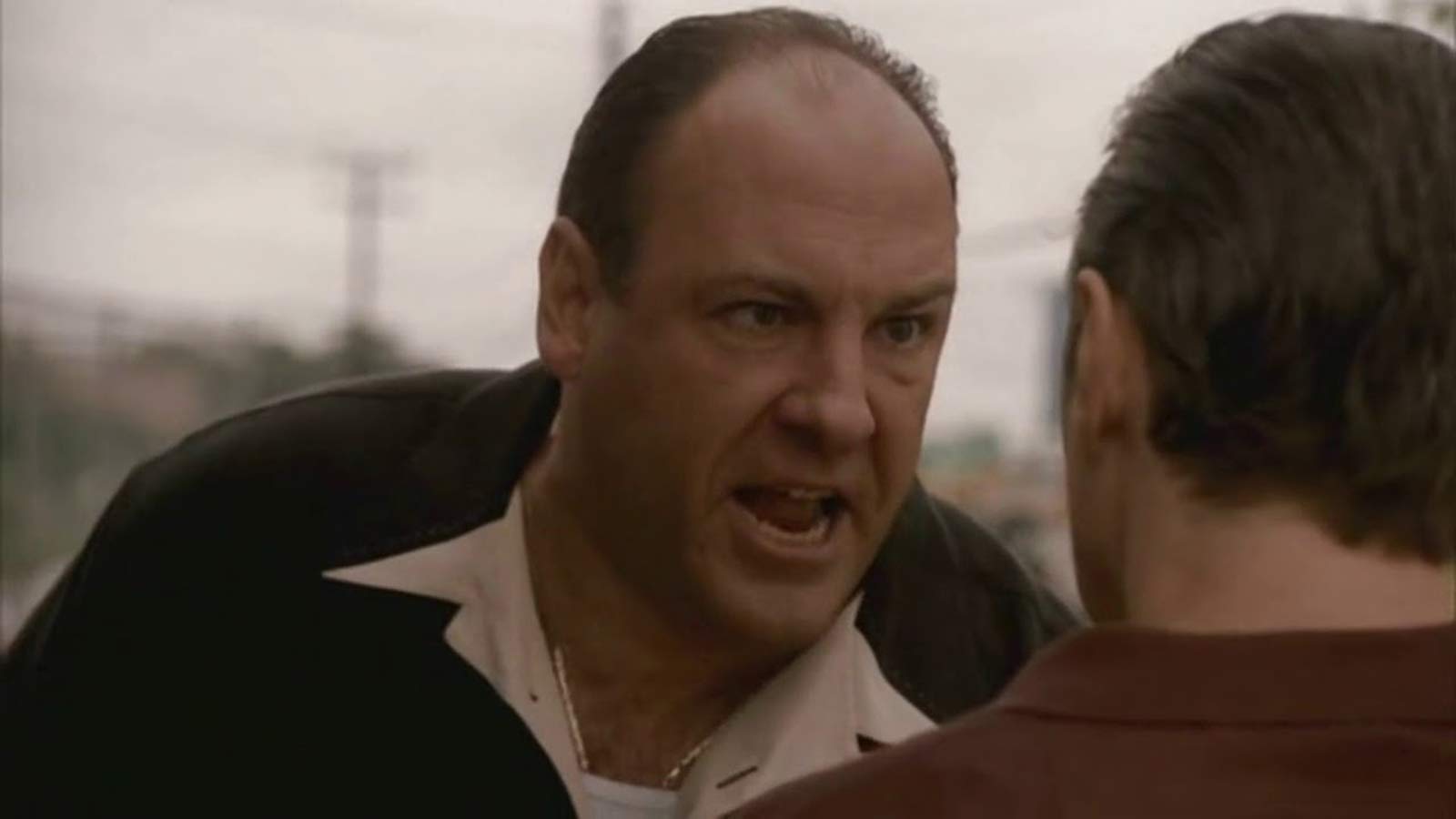
5. Bad: Gambling away Vito Jr.’s funds (S6E16 “Chasing It”)
Vito Spatafore, a high-ranking member of the Di Meo Family, is outed as gay early on in season 6 and goes on the lam, leaving behind his wife & kids after a solemn goodbye.
Phil Leotardo, his brother-in-law, is outraged to learn of the news and makes it his duty to find Vito. Tony is unsure whether to act; he doesn’t care if Vito is gay or not, but is concerned his capos won’t be as progressive.
Tragically, Phil & his crew locate Vito, violently murdering him and desecrating his body. The lack of a father figure and the realization his dad was gay causes adolescent Vito Jr. to enter a rebellious phase, dressing in goth clothes and getting into trouble.

Vito’s struggling widow Marie asks Phil & Tony if they can help fund her move to Maryland so her family can start over. Phil & Tony are reluctant but they both try, to no avail, to talk Vito Jr. out of his behavior.
Tony ultimately decides to give Marie $100,000 to make the move, but impulsively gambles it all away during a night out – always a slave to his own vices. Tony instead offers her $18,000 to send Vito Jr. to a boot-camp program for troubled youths in Idaho (which, even in 2007, still practiced corporal punishment).
Marie is hesitant, but Tony reassures her it will all be okay. The last we see of Vito Jr. he is abducted from his bed by boot-camp employees and dragged screaming while his mother & sister cry tears of regret. Vito Jr.’s life of trauma has only just begun, and it’s all due to Tony’s selfishness and lack of impulse control.

4. Good: Bobby’s kids’s inheritance (S6E21 “Made in America”)
Following Bobby Baccala’s assassination in the penultimate episode of season 6, Tony Soprano realizes the war between New York & Jersey has begun and places his family into hiding.
Tony spends much of the finale making peace with various aspects of his life, seemingly fully prepared to die. He hears whispers that his sister Janice, who essentially manipulated the naive and good-natured Bobby into being with her, is planning to take their now senile Uncle Junior’s leftover money and keep it for herself.
Knowing Janice, Tony assumes this to be true and goes to visit his Uncle Junior, with whom he’s had quite the vitriolic & toxic relationship. Tony asks Junior to give his remaining money to Bobby’s kids so Janice won’t spend it on herself.
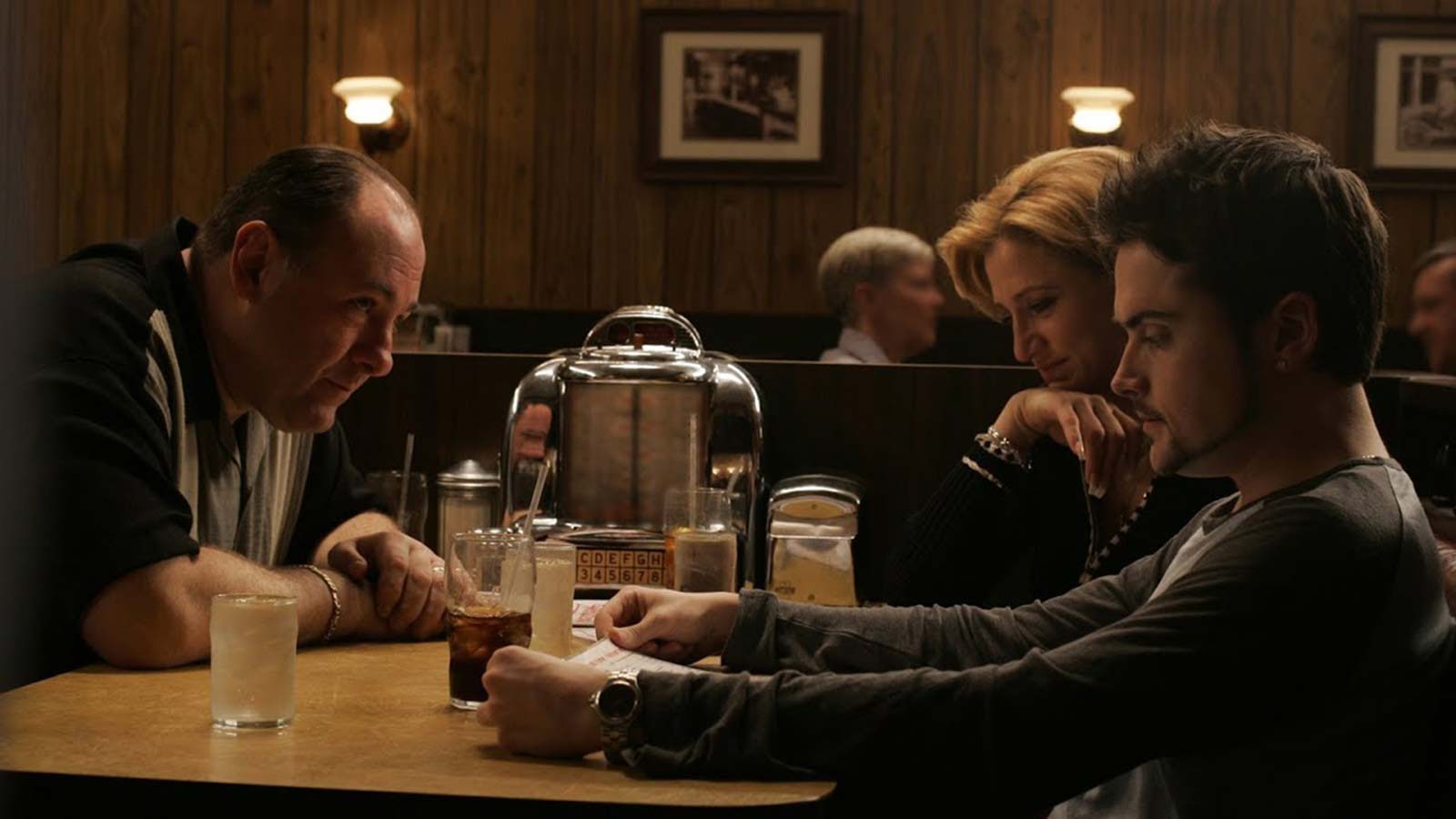
Bobby is Junior’s right-hand man and essentially a caretaker for much of The Sopranos, being the perfect foil for the scheming and hot-headed Junior. Tony coming out of hiding during the middle of a mob war, risking his safety, merely to ask this favor from Uncle Junior is one of the last genuinely altruistic things Tony does.
This is especially notable considering Tony doesn’t give Bobby any respect or recognition during his life. Perhaps it’s merely a way at getting back at Janice for her vulturous desire for inheritance, but Tony is doing the right thing.
It’s ultimately futile, as Junior is so senile he doesn’t even recognize Tony or know where he is, but Tony’s attempt is legitimately selfless & heroic.

4. Bad: Provoking Janice’s rage (S5E10 “Cold Cuts”)
Tony and his sister Janice have always had a rocky relationship, mostly due to Tony’s resentment that Janice left Jersey to be a new-age hippy bandwagoner, leaving him saddled with their emotionally abusive mother Livia.
However, despite their mutual hatred at times, Tony & Janice have more in common with each other (and with their manipulative, spiteful mother) than they’d like to admit.
Take for example the infamous scene in which Tony triggers Janice into an explosive rage sheerly out of spite and for his own amusement. Tony, in a bad mood, sees Janice’s anger management courses are paying off and she’s trying to play the doting housewife to her new partner Bobby Baccala and his two kids.

Tony decides to begin needling Janice about her shady past, like her son Harpo, whom she had with a French-Canadian man before abandoning him. Tony continues to pry, eventually outright asking “I wonder what’s French-Candian for ‘I grew up without a mother? Sacre bleu! Where is me maman?’”
Janice tries to attack Tony, but is restrained by Bobby. Janice devolves into hysteric tears as Bobby attempts to console her and his two kids look on in shock. Tony, with a smug smile, simply walks out of the house and leaves.
The sheer pettiness of this act, whether motivated by his resentment at seeing Janice improve or merely exposing her hypocrisy & falseness, showcases Tony’s capacity for cruelty & sadism.
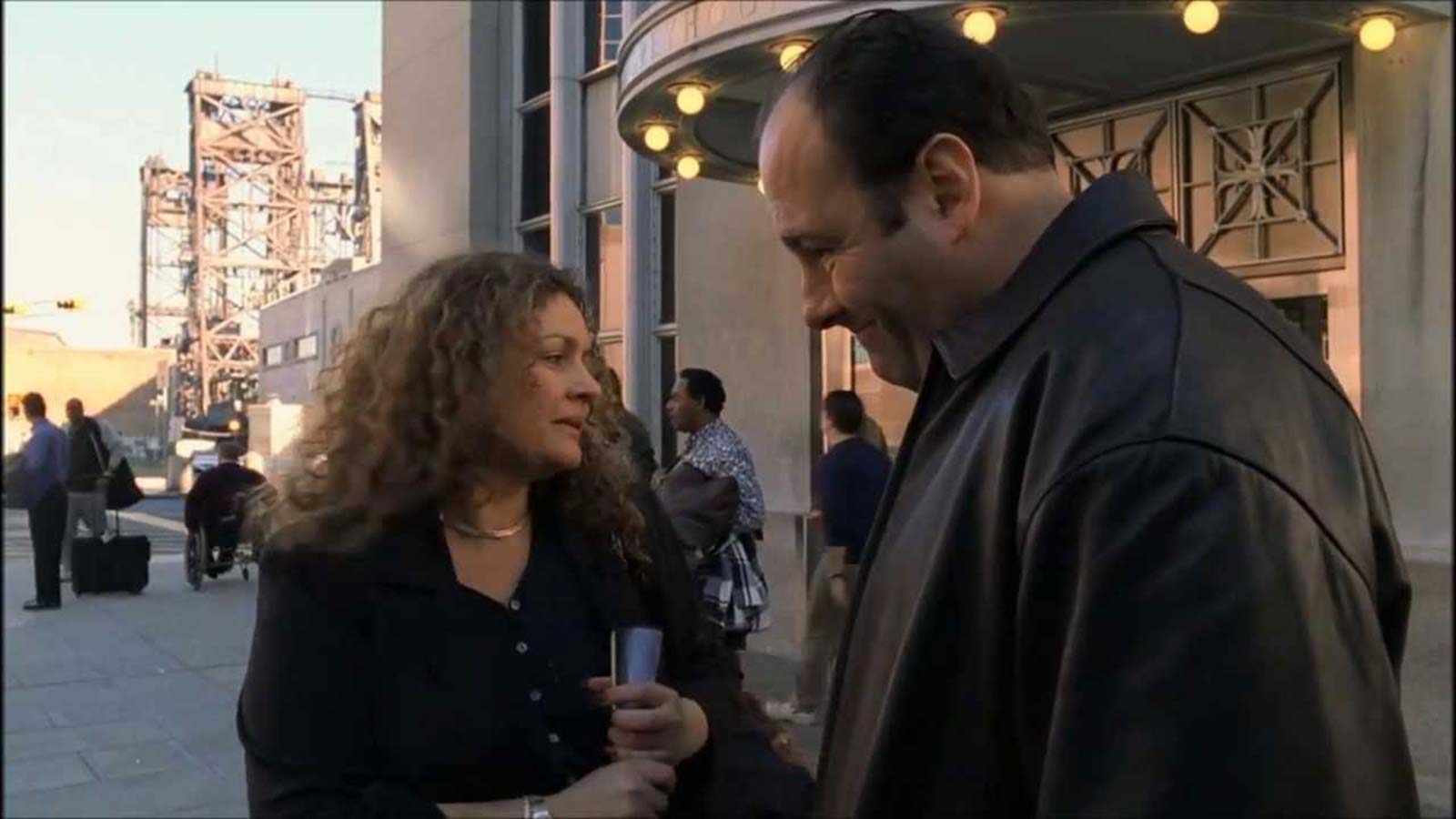
3. Good: Calling off the hit on Coach Hauser (S1E9 “Boca”)
In season 1, Tony is perhaps at his most sympathetic, making genuine attempts to improve his own behavior. This is none more apparent than in the episode “Boca”.
Meadow’s soccer coach Don Hauser is accepting a job at another school the next season, despite having taken the girls’ team to the championships. Upset, the mob guys attempt to bribe and menace the coach into staying, much to his dismay.
Meanwhile, Meadow’s teammate Ally begins cutting herself out of depression, which disturbs Tony & Carmela and the other parents. Eventually, Meadow begins acting out in rebellion against Coach Hauser.

When Tony asks what Meadow’s attitude problem is, Meadow reveals Hauser had sex with Ally, who is in love with Hauser and heartbroken he won’t leave his wife. Meadow is conflicted because Hauser’s own daughter is on the team and would be devastated to learn about her father.
Tony, his civilian friend Artie (who has a bit of a “man crush” on Hauser), mob dad Silvio, and the rest of the crew are disgusted and vow to punish Hauser for his crimes. In any regular crime drama series, they would. But this is The Sopranos.
Artie, guilted by his wife Charmaine, goes to Tony and recommends they call off the hit and phone the cops, because killing Hauser wouldn’t help the girls, only make themselves feel better. Tony, outraged, throws Artie out after an argument.

But Tony contemplates Artie’s words and calls the hit off at the last minute, to Silvio’s disappointment. Tony then sees on the news Hauser was reported by one of the soccer team girls and arrested. Tony, unable to cope with his decision, gets incredibly drunk and passes out on the living room floor.
But before Tony loses consciousness, he tells Carmela – in a tone like a bad kid who finally did the right thing – “I didn’t hurt nobody.” Tony’s genuine attempt to do the morally upstanding thing, instead of resorting to the easier path of mob violence, is both admirable & heartbreaking.

3. Bad: Busting out Davey Scatino’s business (S2E10 “Bust Out”)
A good rule for life: never get into business with organized crime, because like a cancer, it will eventually spread and envelop your entire life. We see this multiple times over the course of The Sopranos; flashbacks reveal Satriale’s used to be just another neighborhood pork store whose owner happened to owe some cash to Johnny Boy Soprano, Tony’s dad. It’s now a mob hangout and obvious front.
Tony does a favor for two orthodox Jewish men who own a motel business, before strong-arming them into allowing the mob to use the business as a front for prostitution and illegal poker games – all the while taking a cut until their debt is paid.
But the worst of this happens to Davey Scatino, a civilian friend of Tony’s from high school. Davey initially appears to be like Artie Bucco, a long-time civilian friend of Tony whom Tony will protect and take pity upon. Unfortunately, Tony turns out not to care for Davey as much as he does for Artie.
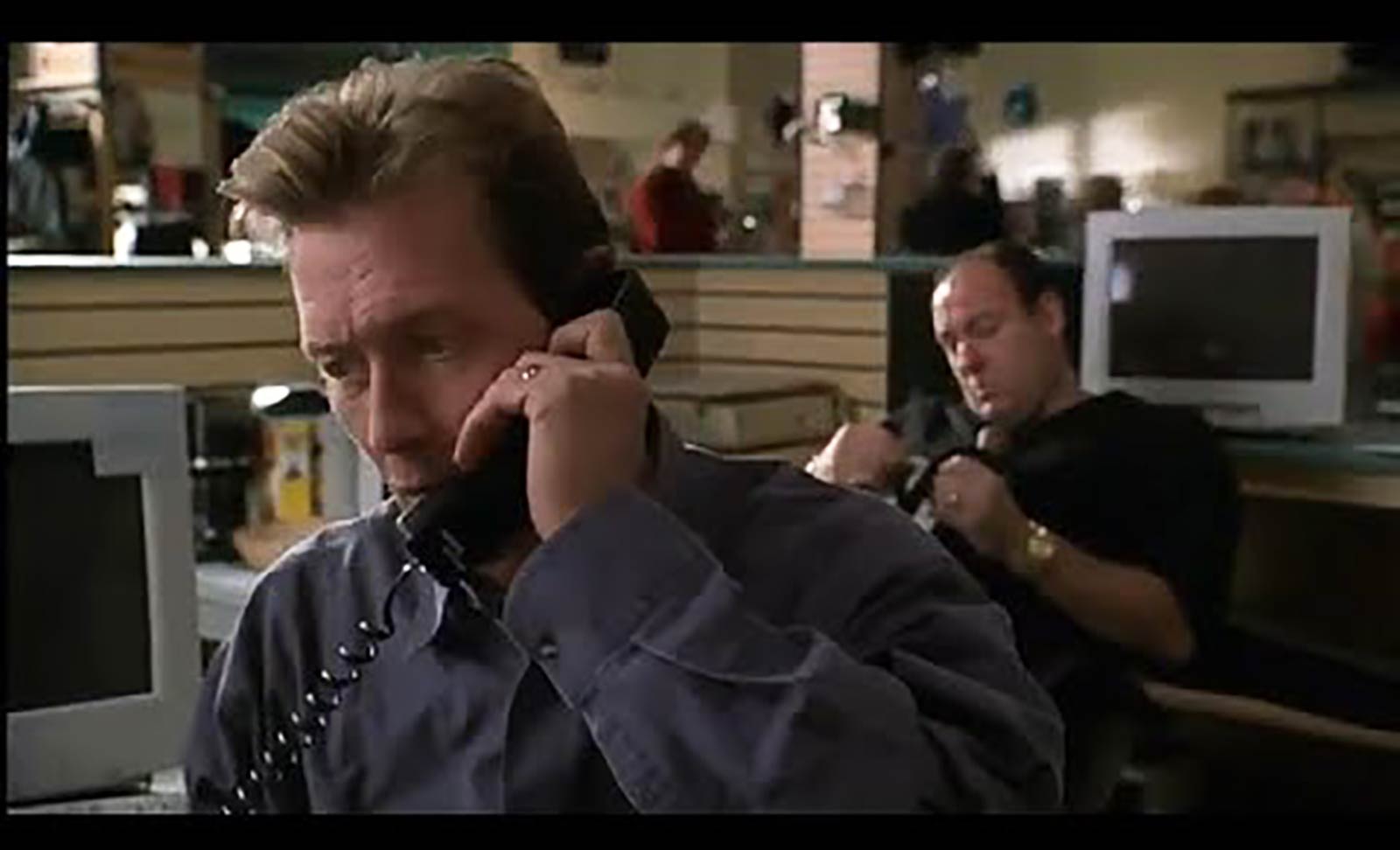
Tony allows Davey, who has a history of gambling addiction (and who already owes money to the monstrous soldier Richie Aprile), to enter a high-stakes “executive game” held at the front motel. Davey loses badly and winds up owing Tony thousands upon thousands.
Tony then arranges for the Scatino family sports store to be used as a front, using the store credit to buy tons of random merchandise to sell illegally on the cheap. Davey, now desperate, depressed, and suicidal, asks Tony when his debt will be paid.
Tony nonchalantly says it’s a “bust out”, and the racket will continue until the store is bankrupt. Davey, heartbroken, asks Tony why he let him join the game in the first place.
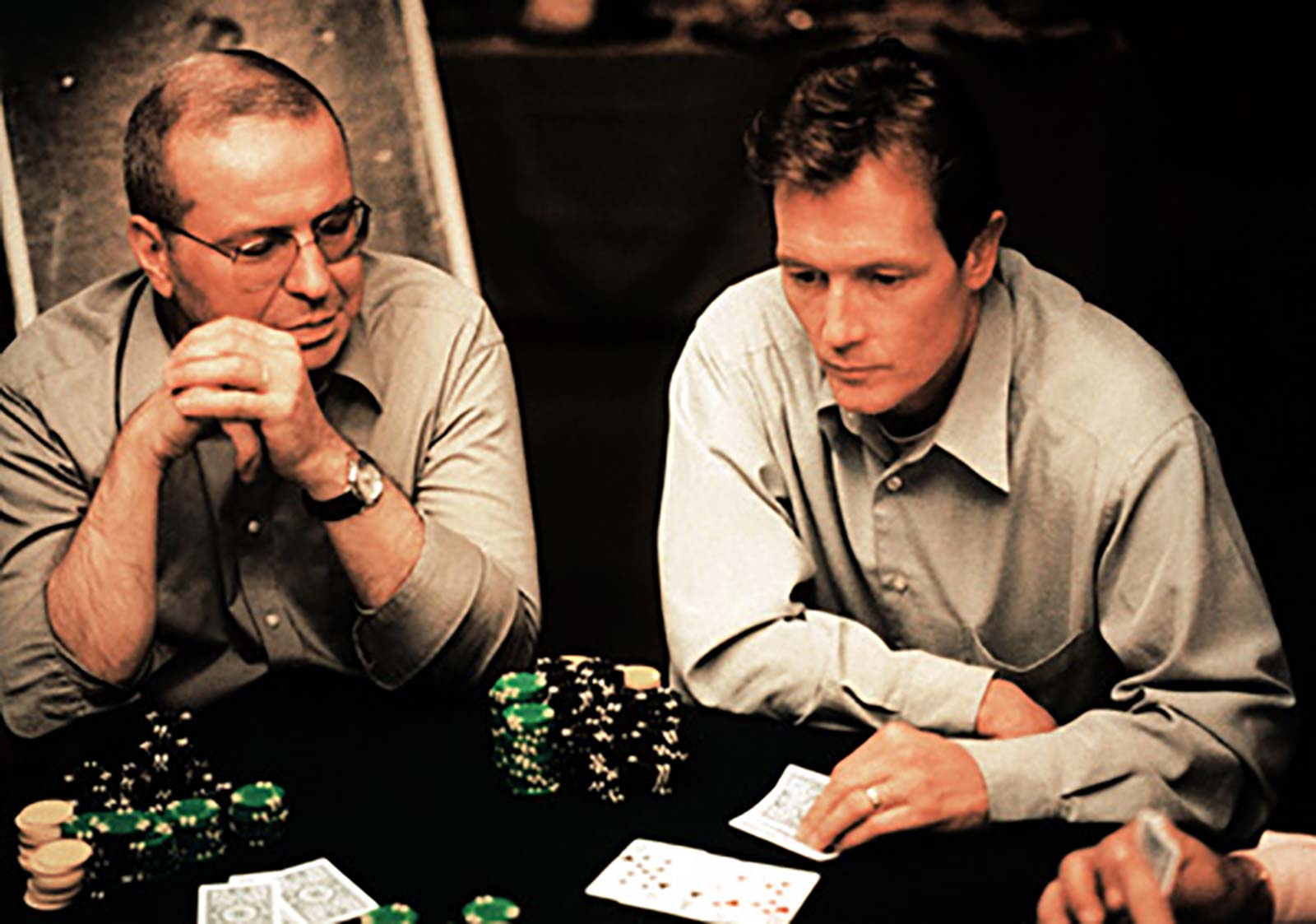
Tony says it was a fair game and he could’ve won, but is also honest: he saw an opportunity to exploit Davey and took it. “It’s my nature. Frog and the scorpion, y’know?”
Tony’s sociopathic exploitation of his childhood friend, effectively ruining his life (and his son Eric’s chance at the Ivy League), is without doubt one of Tony’s most despicable actions of the entire show.

2. Good: Protecting Artie Bucco from Benny (S6E7)
Artie Bucco is Tony’s only genuine friend, it seems. Artie remains the only civilian (aside from his own children) whom Tony gives a damn about. Tony even prioritizes Artie’s safety over relationships with mob associates.
There are countless examples of Tony helping Artie out of serious jams, but perhaps his best is when Artie feuds with Di Meo enforcer Benny Fazio. Benny begins their feud by flirting with Martina, an Albanian hostess who Artie is desperately crushing on, despite being married and twice her age.
Artie finds out Martina has been running a racket that places his business in financial jeopardy: she’s stealing credit card numbers, which has caused several companies to suspend the use of their cards at Artie’s restaurant until they can investigate.

Martina performs this racket along with Benny, with whom she is also conducting an affair, so Artie fires her then drunkenly confronts Benny at his home, where Artie beats him senseless.
If Artie were anyone else, he’d be dead, but Tony protects him, meeting him & Benny separately to negotiate peace. Though Benny does eventually assault Artie for continuing to mock him during an outing with his wife & parents, nothing more serious comes from it.
Artie’s behavior would likely get him killed were he not so close with Tony, but Tony’s friendship, despite its ups and downs, is wholly genuine and he possesses a strong protective streak and love of Artie until the very end of The Sopranos.
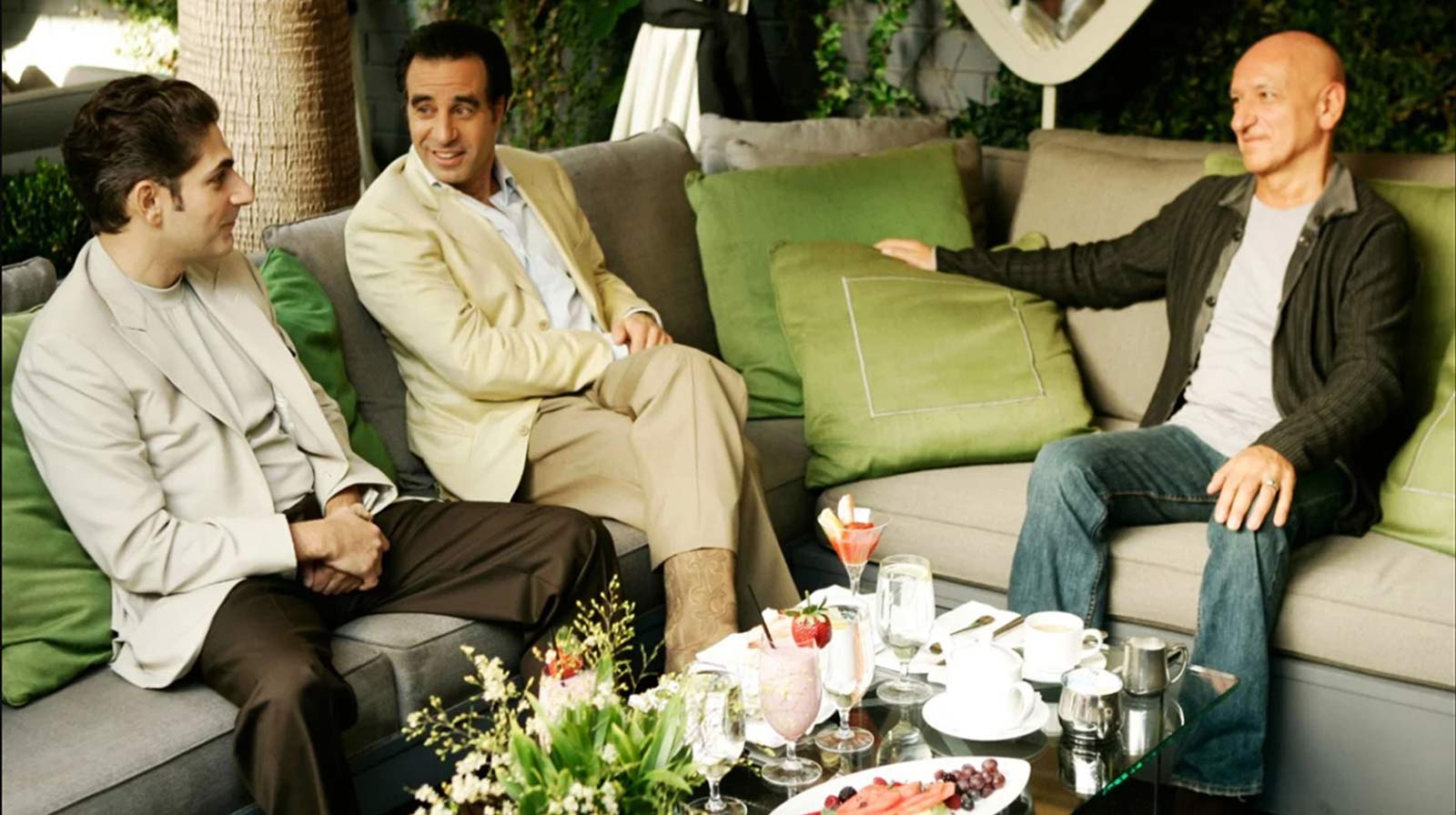
2. Bad: Killing Jackie Jr. (S3E13 “Army of One”)
The Aprile Family goes through quite a lot over the course of The Sopranos. Jackie Aprile Sr., beloved boss of the Di Meo family and Tony’s best friend, dies of cancer early on. Then Richie Aprile, Jackie’s older brother, causes trouble after being released from prison and Tony helps cover up his murder at the hands of Janice.
Finally, there’s Jackie Jr., Jackie Sr. and Rosalie Aprile’s seemingly clean-cut son who begins a relationship with Meadow in season 3. Initially approving of the match, Tony quickly sours on Jackie Jr. because of his frat boy antics and desire to be a part of the mafia against his late father’s wishes. Tony even beats Jackie Jr. for cheating on Meadow by getting a lap dance, despite Tony doing the same often.
Jackie Jr. screws up royally attempting to recreate a legendary stick-up that his father and Tony pulled in their youth, robbing an executive card game with made men. The stick-up is a total disaster: a made man is killed, enforcer Furio is badly wounded, and Jackie’s accomplices get murdered.

Jackie Jr. goes on the run and contacts Tony to ask for help. Tony flatly denies him, showing no empathy towards his best friend’s son and telling him he will not be forgiven like Tony & Jackie Sr. were.
Jackie Jr. eventually leaves his safe house to go for a walk, where he’s quickly dispatched by Vito Spatafore. Tony, as boss, could’ve attempted to negotiate peace & forgiveness for Jackie Jr. out of respect for his father. However, Tony was simply fed up with Jackie Jr. on a personal level, and allowed for the hit to take place so he wouldn’t have to deal with him any longer.
Seeing Rosalie’s agonizing cries of pain and Meadow & Jackie’s sister’s tears at the funeral hammers it home: Tony’s decisions have massive consequences for those around him, and though Jackie Jr. was a f%^&up, his death caused more anguish than it alleviated.

1. Good: Saving AJ (S6E19 “The Second Coming”)
AJ & Tony’s relationship has always been uncomfortable and rocky, and only gets worse as AJ gets older. Being book-dumb and lazy as a result of his spoiled upbringing and often insecure due to Tony’s occasional outbursts about his disappointment, AJ grows more & more depressed.
Tony begins to resent his son’s stupidity & weakness, even telling his therapist Dr. Melfi he “hates” AJ. When AJ’s first major girlfriend Blanca, with whom he’s blindly in love, breaks up with him, AJ takes it personally.
AJ attempts suicide by drowning himself, but panics, clinging to the side of the pool struggling to breathe, his leg attached to a rope tied to a cement brick.
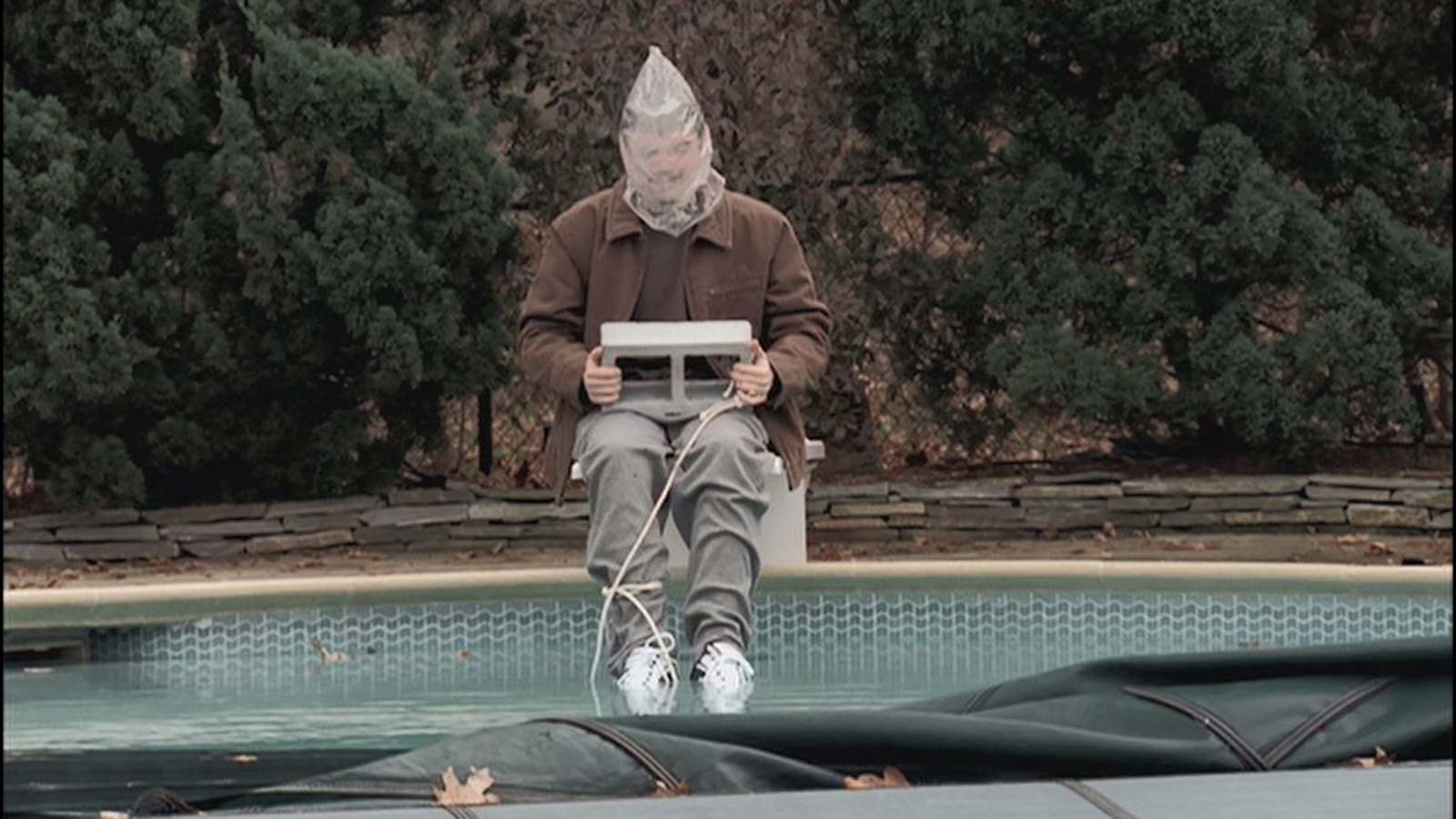
Tony, happening upon the scene as he returns home, immediately dives in and rescues his son, placing him on the poolside edge. Tony, at first furious, demands to know what he was doing. AJ, in a completely hysterical state, simply wails uncontrollably.
Tony instinctively rubs his son’s head, comforting him. “It’s okay, baby. It’s okay.” Tony’s hatred of his son melts away in this moment of parental instinct. It’s clear no matter how much AJ messes up or Tony claims to resent him, Tony loves his kids. It’s one of the few times in the final seasons Tony shows empathy and genuine care for AJ, and it’s a massively important one.

1. Bad: Killing Christopher (S6E18 “Kennedy and Heidi”)
Christopher Moltisanti, Tony’s protege, is a troubled character from the start. His abuse of drugs & alcohol gets to the point where Tony and the crew hold an intervention and force him into rehab.
But after trying to go clean, Chris begins avoiding the mob hangouts where temptation is abundant, causing the crew to resent & mock him. When Chris caves and enjoys alcohol, they scold and mock him for that, as well.
Chris’s insecurities, screw-ups, and devolving mental health come to a head in the final seasons of The Sopranos. Finally, Tony shifts from genuinely caring about Christopher like a second son to considering him a burden.
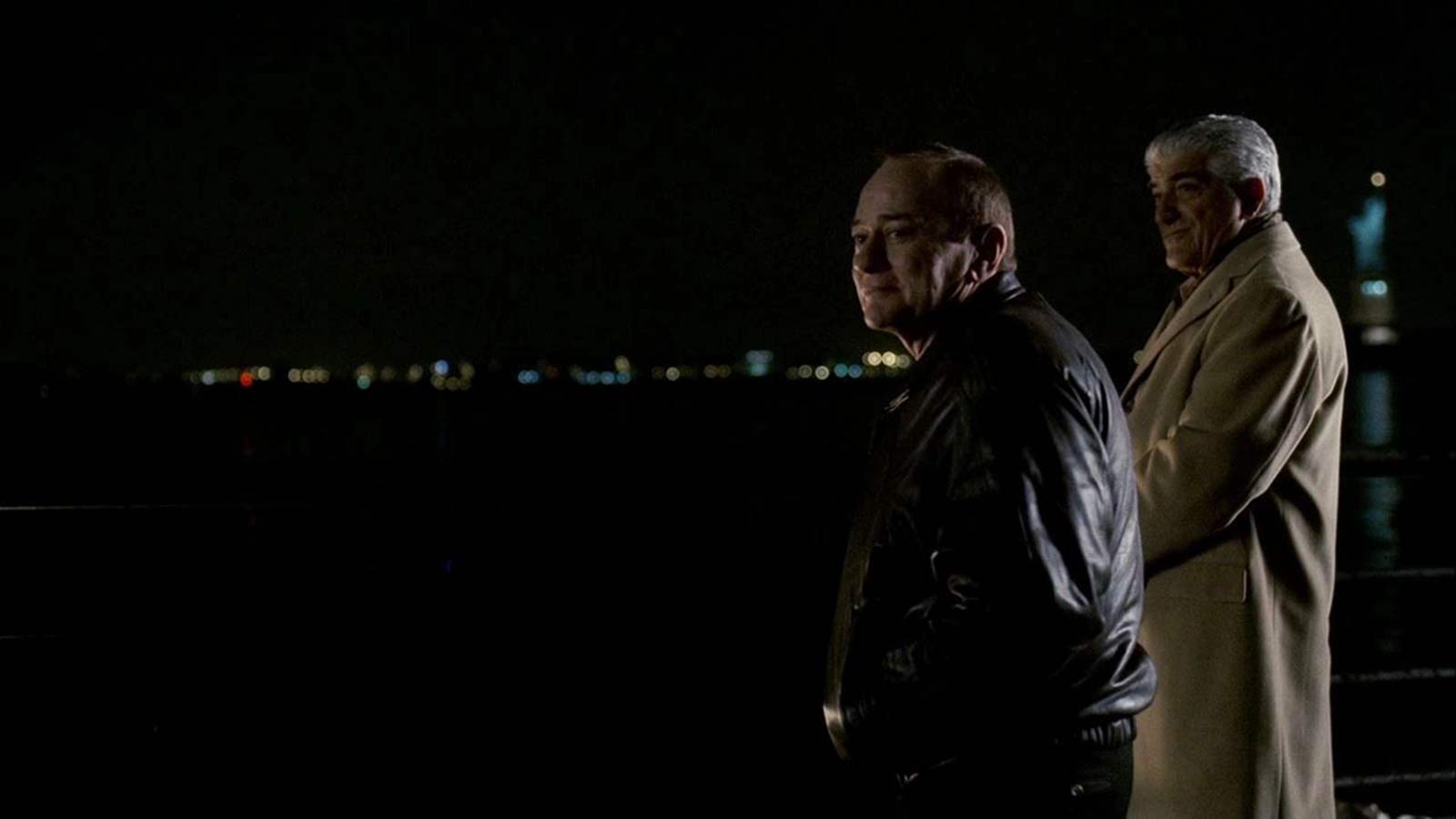
Chris & Tony are driving on a windy country road at dark, coming from a meeting with the Lupertazzi family, when Chris veers into another lane, high on opiates. Chris sharply turns to avoid it, causing the car to roll over the side of the road and crash.
Tony has relatively minor injuries, but Chris, who neglected his seat belt, is mortally wounded and internally bleeding. Tony looks into the back seat, seeing Christopher’s daughter’s car seat impaled by a nearby branch. If this were earlier in the day, she would’ve been killed. Tony hangs up his call to 911 and pinches Chris’s nose shut, forcing Chris to choke on his own blood.
Christopher is ultimately a pathetic and tragic character, but he is loyal to Tony to a fault. Chris’s undying trust of Tony, and Tony’s constant emotional belittlement and manipulation of Chris over the years, ultimately cost him his life.

Though Tony seems to kill Chris because he realizes Chris is endangering his family, his reactions later in the episode are telling. He seems unphased by Chris’s funeral service or his widow’s cries, suggesting he used Chris’s daughter as a mental excuse to alleviate himself of Chris for good, much like Jackie Jr.
But the most horrifying? Tony goes to Atlantic City with a mistress to blow off steam afterwards, and is on a winning streak. He breaks into manic laughter, exclaiming “He’s fucking dead.” His betrayal of Christopher, and his role in Chris’s ultimate downfall, is his most ruthless & heartless action of the series.
—
There are so many more great and awful moments of Tony, but the only way to feel their weight and impact fully is to watch them in context, with Gandolfini’s mesmerizing performance to bring these moments to life.

Do yourself a favor, go watch The Sopranos. Already did? Watch it again. You’ll no doubt pick up on more of these nuances than ever before. With each new viewing, you’ll walk away with a new take on Tony and can decide for yourself whether he’s a good man who does evil things or an evil man who sometimes does good.






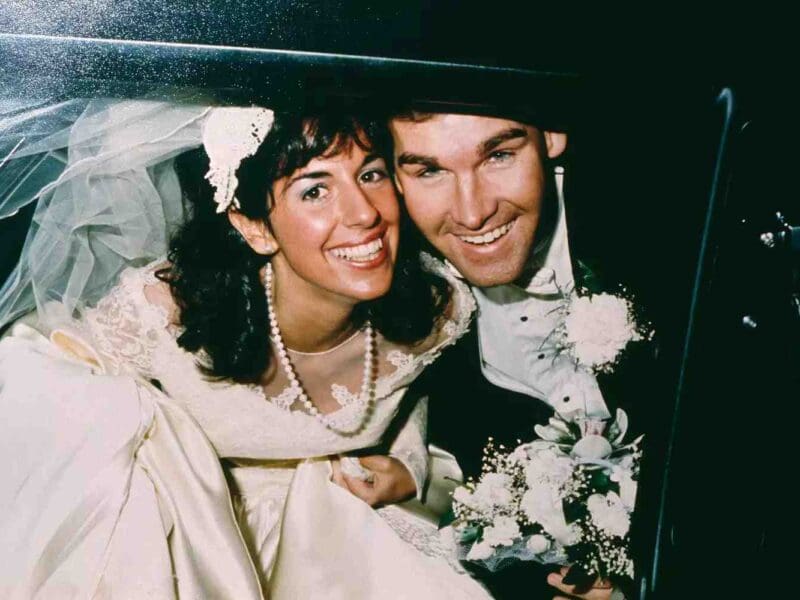

John Campion
/
Excellent analysis of the good and evil that runs through Tony’s heart and soul. As this article clearly shows Tony Soprano perfectly encapsulates the words of Alexander Solzhenitsyn: “If only there were evil people somewhere insidiously committing evil deeds, and it were necessary to only separate them from the rest of us, and destroy them. But the line dividing good and evil clearly cuts through the heart of every human being. And who is willing to destroy a piece of their own heart?” Tony is one of the great fictional characters who in displaying some of the best and a lot of the worst in human nature truly captures the mystery of the divided human heart, the war between our better angels and our beastly instincts. Great article which will now compel me to revisit and rewatch The Sopranos all over again. Thx for the post!
June 11, 2020Jody Pattison
/
I watched the Sopranos for the third time through recently. I have watched the series at very different points in my life. When I first watched it, I think I just seen it as an extended “Goodfellas”. The second time, I seen it from the eye of the “Wiseguy” and was entranced by the lifestyle they were portraying. But this time, as a middle aged man with kids, I think I seen it more from Dr Melfis eye. Throughout the series the characters reference The Godfather and I always thought that was a homage to the birth of this genre on T.V. This time however I felt that David Chase acknowledged our medias impact on real life. The Godfather glamorised organised crime to these Characters and they were acting out that fantasy in their real lives. Film and Television has the ability to create a reality when it is so real it appears it is portraying real life.
December 11, 2020